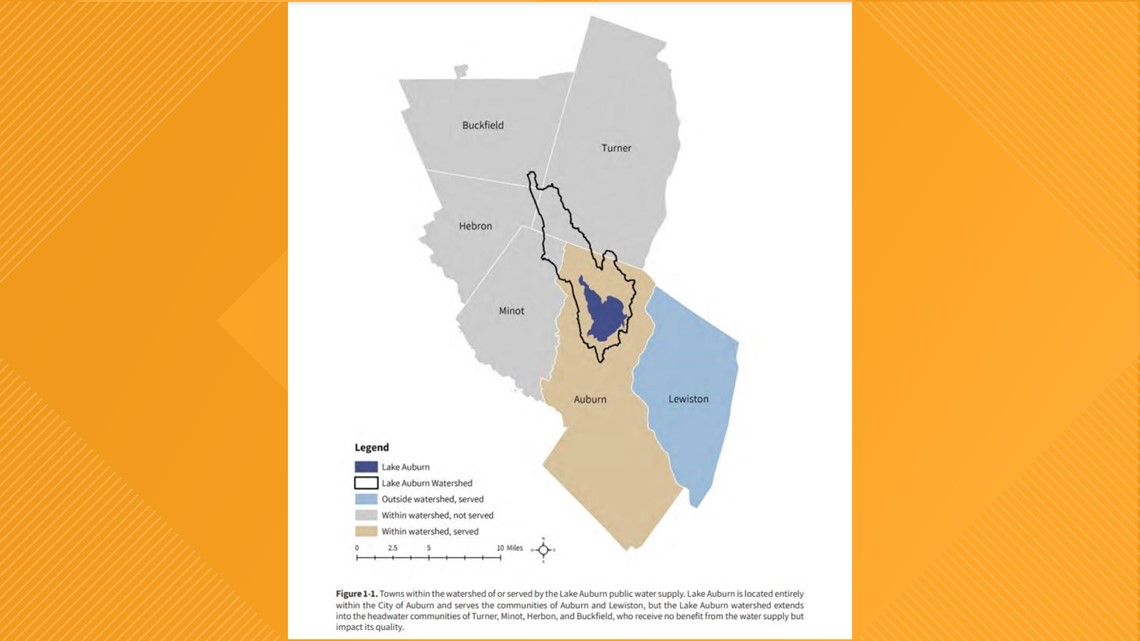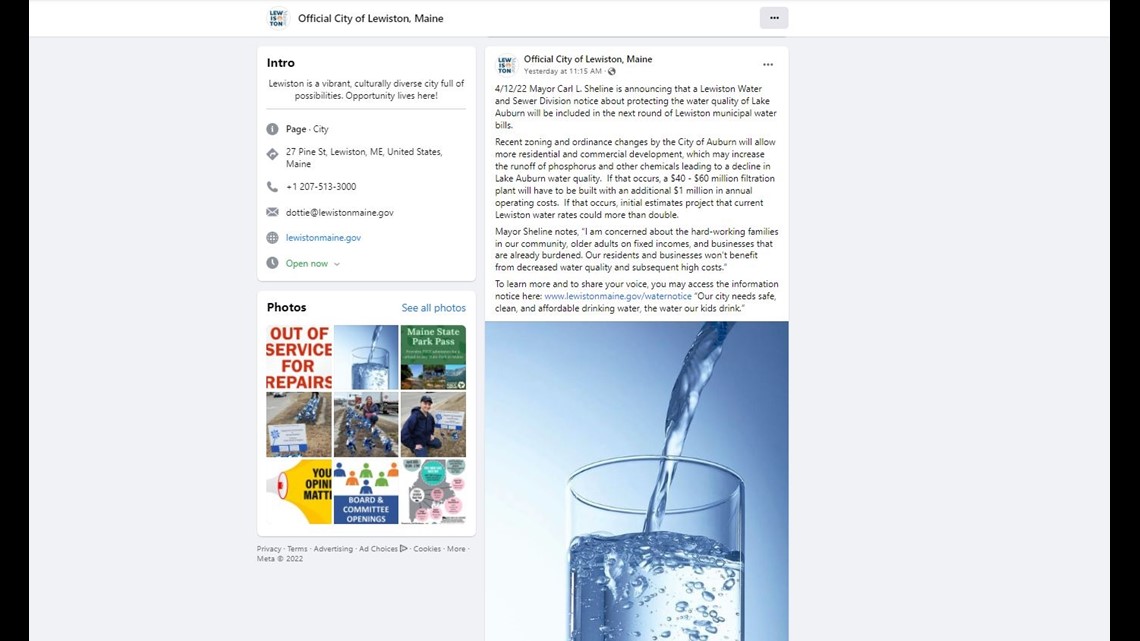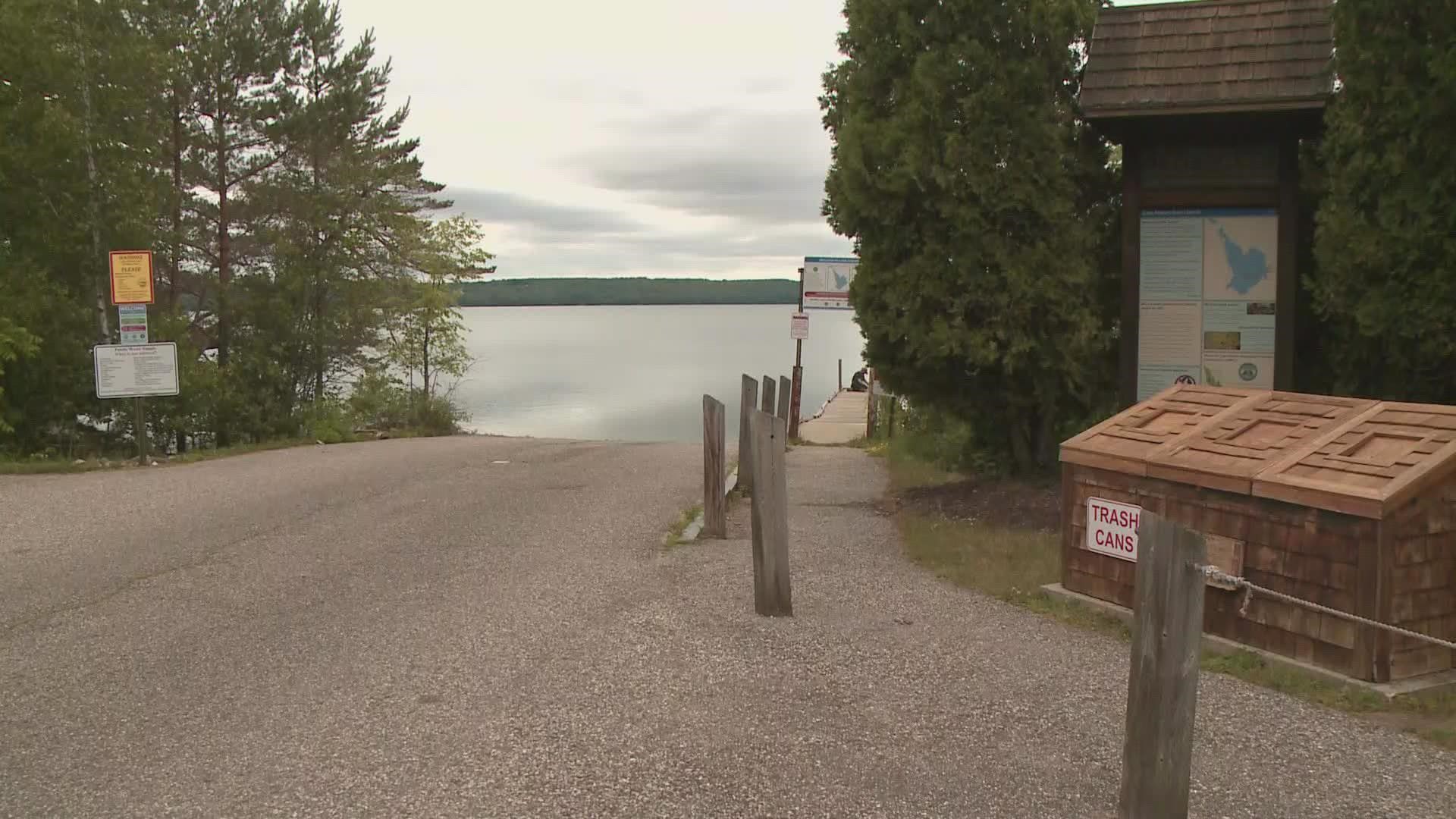AUBURN, Maine — Auburn City Council will consider a controversial proposal Tuesday to rezone parts of the watershed around Lake Auburn, which requires more stringent designs for septic systems within the watershed.
The city planning board approved the changes, and Auburn Mayor Jason Levesque said Lewiston’s water department did, too. But Levesque said he has been receiving letters from Lewiston’s mayor and a city administrator arguing that Lewiston, which gets its drinking water from the lake, needs more say in the matter.
At issue is 148 acres in Auburn including a gravel pit and landfill. Rezoning would remove that parcel from the watershed, which in turn would allow for more development.
"The rezoning affects the part of the watershed that has never been in the watershed. It was an arbitrary line drawn," Levesque said. "What we did is we removed 111 acres that’s currently a gravel pit. Another 20 or so acres is our landfill. That’s where we put our trash for 50 years. We would never put our trash in the watershed, but somewhere along the lines someone drew the line and included those two parcels inside the watershed."
Levesque said all watershed stakeholders were made aware of a watershed study by FB Environmental Associates, Horsley Witten Group, and The University of Maine.
"The latest study looked at the geography, looked at the topography and reaffirmed what we already knew, that [the gravel pit] was not in the water shed. It’s not draining into the lake, it’s actually draining into the river," Levesque said.
"Right now a gravel pit is absolutely the worst thing you could have for phosphorus runoff," Levesque said. "There’s no vegetation at all, no trees, no grass, there’s no proper retention ponds. So by rezoning this into commercial out of the watershed zone, we can now actually have good development: residential, light commercial, retail. We can have appropriate retention ponds, grass, trees, buffers. We can actually limit the amount of runoff that’s going into the Androscoggin River."
Lake Auburn is fed by a watershed that includes Buckfield, Turner, Hebron, Minot and East Auburn. It is the only source of drinking water for Lewiston and Auburn. The lake is exempted by the U.S. Environmental Protection Agency from a requirement to filter water because of the high quality of the lake's water.


Rezoning
Auburn Mayor Jason Levesque said the rezoning is based on July 2021 study commissioned by the city of Auburn that found the "regulatory framework for the protection of Lake Auburn as a water supply is mostly robust and effective."
According to the study, the water quality "reached a tipping point" during the past decade, when the amount of phosphorus increased, likely because of forested land in the watershed dropping below 75 percent. But a 2019 treatment with alum "achieved a temporary reset," though the study concluded that "business as usual" would jeopardize the water quality, regardless of future treatments.
The study also said allowing additional residential growth would increase the risk of algae blooms, though requiring low-impact development would provide a "small but substantial" reduction in risk.
The study makes specific recommendations that include aligning septic systems in the watershed with "best science" and state regulations, developing clear standards for farm management to limit the volume of phosphorus in the lake from commercial farms, and developing low-impact development requirements for new single-family residential development.
"The recommendation was upon failure of a system, and once it needs to be replaced it shouldn’t be replaced with the old ineffective, not environmentally safe septic design but this newer design," Levesque said. "Furthermore, if they sell the home before that replacement, they have to provide documentation that the septic has been upgraded to the new or higher standard, and then it has to be checked every five years to make sure that it’s not leeching and that we are consistently protecting the lake, even after a new modern design is put in place."
"This is the water that our kids drink, and I’m concerned that if water quality decreases, there will be no turning back, and we will have to build an expensive filtration plant," Lewiston Mayor Carl Sheline said.
Shilene helped pen an open letter to residents that was shared on the city’s Facebook page, saying Auburn’s zoning changes could change the water quality so drastically the cities would need to build a $40- to $60-million water filtration plant.


Susan Breau is a hydrologist with the Maine Center for Disease Control Drinking Water Program. Breau can only speak on the water quality coming from the taps, which she said is so clean that Lake Auburn’s watershed holds one of only eight filtration waivers in the entire state, meaning Lewiston and Auburn do not need a filtration plant right now.
"Development, bacteria, things like that, turbidity, those are the kind of parameters that need to be met in order to maintain the waiver," Breau explained.
Lewiston and Auburn meet the criteria to continue the filtration waiver, but Lewiston Water and Sewer Department Deputy Director Kevin Gagne said more development could change that.
"We’ve seen wind and large storms come in, and the turbidity gets kicked up. It does go over [level] one. We typically will shut down around [level] three," Gagne said.
Gagne said Lake Auburn would lose its waiver if the quality hit a level five.
Lewiston city administrator Heather Hunter and Gagne and said they would like to see a more comprehensive study done on what development around Lake Auburn could do to change its quality.
Squabbling
Hunter said Lewiston hasn't had any voice in the conversation, but Auburn Mayor Levesque said all stakeholders have been involved and that Lewiston is resorting to "scare tactics."
Levesque shared a memo with NEWS CENTER Maine sent by Kevin Gagne to Auburn Watershed Protection Commissioners, in which Gagne said that from what they had seen as of September 2021, Lewiston "staff did not oppose" Auburn's zoning changes.
While Levesque thinks their tune changed when Lewiston Mayor Sheline took office in January, Gagne said his concern grew from being excluded from development decisions in the acreage that’s been rezoned out of the watershed.
"If the development goes in such a way that there is no way of any contamination, and we don’t change the groundwater underneath, and possibly change landfill leachate that’s there, then I don’t think anybody reasonable would have a concern," Gagne said. "The problem is they haven’t given those details."
Lewiston Mayor Sheline said in a press conference that the city is requesting a "comprehensive study of the entire watershed, rather than a series of piecemeal efforts, to really understand what we need to do to protect the lake."
"We are talking about our drinking water, and it's of paramount importance," he continued. "This is the water our kids drink."
The city of Lewiston had reportedly written to the Auburn Water District in an attempt to block any development of the parcel.
In a statement, Auburn Mayor Jason Levesque wrote that the city of Auburn would "rely on science, facts, and careful deliberation" to make decisions instead of "in front of a microphone."
"And we will not have our city's future dictated to us by the mayor of another municipality," he wrote.
Auburn City Councilors will have a first reading of the proposed zoning changes in their public meeting on Tuesday, April 19.

